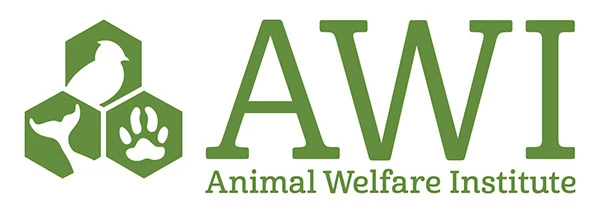
Real Estate Licensing: Requirements and Key Differences
Real Estate License vs. Real Estate Certification: What's the Difference?
If you're considering a career in real estate, understanding the difference between Real Estate Licensing and Real Estate Certification is crucial. Both are key milestones on the path to becoming a professional in this field, but they serve different purposes.
In this article, we'll explore what each term means, how they differ, and how they can shape your real estate career. Whether you’re looking to practice as a licensed real estate agent or enhance your expertise with a certification, understanding these two concepts will guide you in the right direction.
What is Real Estate Licensing?
It is a formal process that grants you the legal authority to buy, sell, or manage properties. In most states, including Illinois, you must pass specific pre-licensing courses, complete a set number of hours of education, and pass a licensing exam to become licensed.
Types of Real Estate Licenses
There are different types of real estate licenses, each serving a unique purpose. Here are the most common types:
Broker License: This license allows you to work independently or with a brokerage firm, helping clients buy or sell real estate.
Managing Broker License: This license is for those looking to manage a real estate brokerage firm and supervise other real estate agents.
Mortgage Broker Licensing: For individuals who help clients secure mortgages to buy homes.
Nationwide Real Estate Licensing: Some states offer reciprocity, allowing you to use your license in multiple states without retaking exams.
To obtain a real estate license, you must complete pre-licensing courses, pass the Broker License Exam, and engage in Licensing Exam Preparation. Each state has its requirements for real estate fundamentals, which you need to complete to qualify.
What is Real Estate Certification?
Unlike a license, Real Estate Certification is a voluntary credential that demonstrates your specialized knowledge or skill in a particular area of real estate. Certifications typically don’t require you to pass an exam, but they do require completing a set number of hours of real estate education and courses.
Common Types of Real Estate Certifications
There are various certifications that real estate professionals can pursue. Here are a few examples:
Certified Residential Specialist (CRS): Specializes in residential property transactions.
Accredited Buyer's Representative (ABR): Focuses on buyer-side transactions.
Certified Commercial Investment Member (CCIM): Designed for those specializing in commercial real estate.
Real Estate Investment Certification: Specialized courses that teach Investment Property Strategies and analysis.
While certifications do not grant the legal ability to conduct real estate transactions, they can help you stand out in a competitive market. With certifications, you can increase your credibility and specialize in niche areas of the industry, such as Investment Property Analysis or Real Estate Business Courses.
Key Differences Between Real Estate License and Certification
While both real estate licenses and certifications serve important roles in your career, they are fundamentally different in several ways.
Authority and Legality
A Real Estate License is legally required if you wish to represent clients in real estate transactions, such as buying or selling property. It is issued by the state government and grants you the legal authority to work as a real estate agent or broker. Without a license, you cannot legally practice real estate.
On the other hand, Real Estate Certification is not required by law and does not give you the authority to conduct transactions. Instead, it represents your specialized knowledge in a particular field and enhances your expertise in real estate.
Requirements
The requirements for a Real Estate License are more extensive. You must complete Pre-licensing Courses, pass a Broker License Exam, and meet specific state requirements. This process is typically more rigorous than obtaining a certification.
Real Estate Certifications, however, only require you to take specific courses related to the certification’s focus area. You don’t need to take an exam for most certifications, and the process is much shorter and less involved than becoming licensed.
Scope of Work
A Real Estate License opens up a broad range of career opportunities. You can work with buyers and sellers, represent clients, and handle transactions. You may also be able to manage properties or even run your brokerage firm with the appropriate license, such as the Managing Broker License.
A Real Estate Certification demonstrates specialized knowledge in a niche area. For example, if you hold a Certified Commercial Investment Member (CCIM) certification, clients will recognize your expertise in commercial real estate investments.
Certifications often lead to higher commissions, and specialized job opportunities, and can help you build a reputation as a trusted expert in specific areas of real estate.
How Real Estate Licensing Benefits Your Career
Becoming a licensed real estate agent opens the door to numerous career opportunities. Here are some of the key benefits:
Broader Career Opportunities
With a real estate license, you can work as an agent, broker, or property manager. You’ll also be eligible for higher commissions, as you’ll be legally allowed to represent buyers and sellers.
Post-Licensing Education
After becoming licensed, you’ll need to complete Post-licensing Education to keep your skills sharp and maintain your license. Continuing education ensures that you stay up-to-date with industry changes and trends, such as new laws, regulations, and market developments.
License Reciprocity Services
If you want to work in another state, some states offer License Reciprocity Services, meaning you may not have to take another exam. This is especially useful for agents looking to expand their careers across state lines.
How Real Estate Certification Enhances Your Skills
While a real estate certification doesn't grant you the authority to work as an agent or broker, it significantly enhances your skills and industry knowledge. Here’s how certification can benefit your career:
Specialized Knowledge
By completing Real Estate Certification programs, you gain advanced knowledge in niche areas, such as Investment Property Analysis or Real Estate Investors Training. This can give you an edge over other professionals in the industry and help you become a sought-after expert.
Credibility with Clients
Certifications show clients that you have invested in your professional development. They add credibility to your profile and can help you establish trust with clients looking for specialized services, such as Real Estate Investment Classes or Investment Property Courses.
Career Advancement
Certifications can lead to promotions, salary increases, or new opportunities within specialized areas like property management or real estate investments. They can also open doors to high-commission positions in niche markets, such as commercial or luxury real estate.
When to Pursue a Real Estate License or Certification
So, when should you pursue a Real Estate License, and when should you seek a Real Estate Certification?
Pursue a Real Estate License: If you want to engage in real estate transactions, represent clients, or manage properties. Start with Pre-licensing Courses, prepare for your Broker License Exam, and pursue Licensing Exam Preparation to ensure success.
Pursue a Real Estate Certification: Once you’re licensed you want to specialize in a specific area. Consider certifications in Real Estate Financial Courses, Investment Property Strategies, or Real Estate Analysis to build your expertise and enhance your career.
Conclusion
Real Estate Licensing and Real Estate Certification offer significant value to real estate professionals. While licensing is a legal requirement for working as an agent or broker, certification provides an opportunity to specialize and advance your expertise.
By understanding the key differences and knowing when to pursue each, you can make informed decisions about the best path for your career.
WE OFFER OVER
25+
PROGRAMS
WE HAVE SERVED
12000+
STUDENTS
VETERAN STAFF
40+ Years
INDUSTRY EXPERIENCE
PROUDLY PROVIDING
23+ Years
OF EDUCATION
INLAND REAL ESTATE SCHOOL, INC. SUPPORTS

Campus Visiting Hours by appointment only:
1st-18th each month AM times, M-F
19th-end of the month PM times, M-F
Visiting hours need to be scheduled in advance
OAK BROOK, ILLINOIS 60523. © INLAND REAL ESTATE SCHOOL, INC. A PROFESSIONAL STUDIES INSTITUTE, INC. COMPANY, 2010. ALL RIGHTS RESERVED.
NOT AFFILIATED WITH THE INLAND REAL ESTATE GROUP OF COMPANIES, INC. THE INLAND NAME IS USED UNDER LICENSE. Privacy Policy







